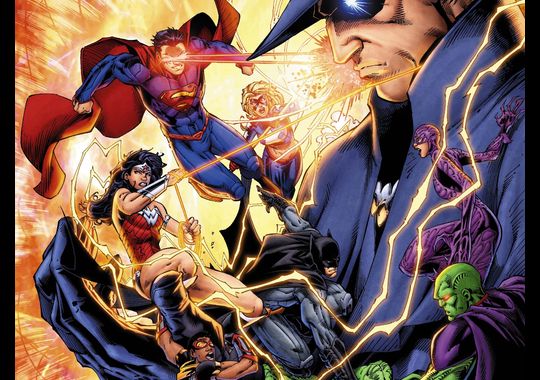Rectify Season 2, Episodes 4 & 5 “Donald the Normal”/”Act As If”
Written by Kate Powers & Ray McKinnon (“Donald the Normal”), Victoria Morrow (“Act As If”)
Directed by David Lowery (“Donald the Normal”) and Andrew Bernstein (“Act As If”)
Change. At the heart of Rectify is the idea of change: set in a town stuck in the past, featuring a family reeling from an event twenty years ago, and a main character whose entire reality is broken the instant he’s released from prison. And as the heart of Rectify, the Holden household kitchen serves as the perfect metaphor for change: starting over really only happens when you start over, when you finally get rid of the old and allow the new to consume you. But true, soul-enriching change is scary, difficult, and easily corrupted: and in “Donald the Normal” and “Act As If”, that struggle bleeds into every scene, every conversation, every shot composition – and as always, makes for some of the most compelling, philosophically curious TV around.
The magic of these two episodes – outside of the disturbing-yet-ethereal quality Rectify gives to small-town life, and the intimacy it gives everyday events – is how they work as cause-and-effect pieces: where “Donald the Normal” features characters trying to push past their normal self-perceptions, “Act As If” throws them right into the fires of change, all centered on the destruction of the Holden kitchen by a lost, frustrated Daniel. There are other pieces spread off to the side – like Daniel’s visit to Kerwin’s family, a heartbreaking scene that was both cathartic and haunting, thanks to Kerwin’s mother – but for the most part, both episodes focus on what happens when we force ourselves to change and experience new things, before we really have the personal conviction to actually become these things.
For some, those moments of reality – or quasi-reality, if we remember last season’s goat ride, and now Lezlie with a “z” – come frequently: given all the time he’s had to ponder about what kind of person he was or could’ve been, he’s trying to figure out who he wants to be, and that comes first by fixing his family. Again, the metaphor of the kitchen works wonders: although Daniel’s undeniably a part of his own home, that comes with lots of clutter that other people have to figure out how to work around. Sure, Daniel is trying to help by rebuilding a part of his home lost when he went to prison (and his father died in his absence, let’s not forget) – but is it something he can save, or even should try to? As concerned and fascinated Daniel is with the past – right down to antique stoves – it’s the very same thing that traps him, Amantha, poor Teddy Jr., and the rest of his family: and until they’re able to let the past go (something Paulie’s legal system isn’t ready to do yet), what’s new is always going to struggle to grow, half in the light and half in the shadows, like Daniel as he sits and thinks about the lawyer who kept him alive for so many years.
Others have the same reality-checking moments in “Donald”, that are acted upon in “Act”: and all explore the ambiguities of change, the benefits and horrors of escaping what is known. Of course, Teddy Jr. and Amantha are the best examples of this, particularly Teddy Jr. (Amantha’s is mostly played for light humor, though it ties into other thematic material cleanly), whose bound-to-fail new business and struggling marriage are only getting worse with his new attitude and possible addition to the family (Tawney’s laaaaate, y’all!). To his credit, Teddy Jr. is making genuine effort to ‘act as if’ with his wife, pretending that everything unsettled was once whole again: but she’s not buying it, and facing a pregnancy, Teddy’s assumed self-discoveries are coming hand-in-hand with his wife’s test of faith, a wonderfully complicated relationship that becomes more and more revealing with each hour, a vast improvement over one of the show’s few flaws early on. Their attempts to grow appear to be coming out of good places: but in between them, the shadows of Daniel still linger, an everlasting presence that touches lives, unsettles them, and stumbles back out as unsure as he was when he walked in.
Of the two episodes, “Act As If” feels a bit more complete, pushing a new, surreal character into Daniel’s life while everyone tries to become surrealist versions of themselves in their attempts to catalyze change – though it lacks the hilarious lunch scene of “Donald the Normal”, where Daniel conversates with a bunch of upper-crust women at an art gallery. Like Jon, they’re all people looking to the ones they love to remind them who they are: but in a world where we all live in constant crises of identity (be it personal or professional), Rectify quietly reminds us that the search for self is never going to be a clean, easy one.
— Randy






